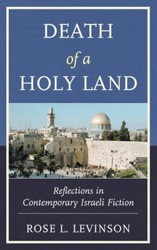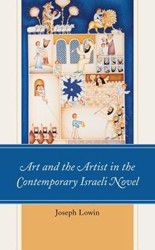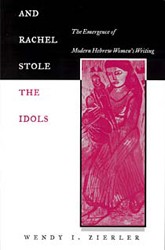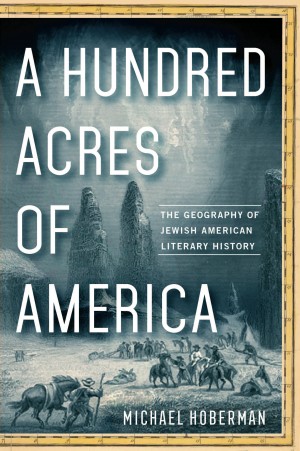By
– September 12, 2011
The plural noun in the main title of Modern Jewish Literatures raises the age-old question of how to define Jewish literature while suggesting the plurality of its achievements, cultural orientations, languages, circumstances, and genre manifestations. Although the fifteen chapters do not directly speak to one another, they draw significant portions of a map of understanding, a map for which the ultimate shape remains elusive.
Each essay breaks new ground in addressing modern Jewish experience and its literary representation. Several scholars attend to authors whose works promote a cultural campaign, trailblazers whose theoretical frames of reference simultaneously energize and circumscribe their creative efforts. Assumptions about Judaism and Modernism, the relative status of Hebrew and Yiddish, and relationships between Diaspora cultural creativity and that of Palestine/Israel are framing propositions. Is the deliberate production of a people’s literature a deliberate exercise in nation building?
Several essays look away from the creation of literature to concerns about its publication and distribution; thus the book offers lively explorations of uniquely Jewish publishing enterprises and of one very special Jewish book store.
This marvelously rich and varied gathering has many surprises for scholars and for general readers who have patience with academic style. It is a major resource for teachers and their students. Index, introduction, notes.
Professor Pinsker argues that the notable garden of Hebrew literature that blossomed in early 20th century Europe is not well served by criticism that views it primarily as a strategy in the Jewish nationhood agenda. While Zionist impulses certainly encouraged the resurgence of Hebrew as a modern vernacular and literary language, the nature of the literature (primarily fiction) draws its energy from several other historical factors. Pinsker shows how this body of Hebrew literature is energized by the various esthetic and thematic concerns broadly labeled as Modernism.
Like the encompassing European Modernism, the new Hebrew literature is a literature of urban experience. Its major practitioners were wanderers who developed a café-centered community life in several cities where Hebrew periodicals and publishing houses also emerged. The Modernist urban themes of dislocation, alienation, and identity (thus the passport metaphor) preoccupied this group of writers, as did those of sexuality and gender. Pinsker explores provocative subsets of these concerns, including the crisis of Jewish masculinity, the interface of writing and sexual desire, and the Jewish version of the New Woman.
In a major section of his study, Pinsker examines how these writers express Modernist attitudes toward Jewish traditions and religiosity.
Professor Pinkser’s learned and lively exploration provides not only a rich theoretical context for examining a largely undiscovered body of important Modernist texts, but also a series of close, often original, readings. He offers a fine blend of lucidity, passionate attention, and intellectual play. Index, introduction, notes.
These two volumes enlarge our understanding of key issues, texts, and personalities. Pinsker isolates and expands a few of the areas of interest pursued in Jelen-Kramer-Lerner enterprise. Indeed, the two books conduct a fine, rewarding conversation.
Each essay breaks new ground in addressing modern Jewish experience and its literary representation. Several scholars attend to authors whose works promote a cultural campaign, trailblazers whose theoretical frames of reference simultaneously energize and circumscribe their creative efforts. Assumptions about Judaism and Modernism, the relative status of Hebrew and Yiddish, and relationships between Diaspora cultural creativity and that of Palestine/Israel are framing propositions. Is the deliberate production of a people’s literature a deliberate exercise in nation building?
Several essays look away from the creation of literature to concerns about its publication and distribution; thus the book offers lively explorations of uniquely Jewish publishing enterprises and of one very special Jewish book store.
This marvelously rich and varied gathering has many surprises for scholars and for general readers who have patience with academic style. It is a major resource for teachers and their students. Index, introduction, notes.
Professor Pinsker argues that the notable garden of Hebrew literature that blossomed in early 20th century Europe is not well served by criticism that views it primarily as a strategy in the Jewish nationhood agenda. While Zionist impulses certainly encouraged the resurgence of Hebrew as a modern vernacular and literary language, the nature of the literature (primarily fiction) draws its energy from several other historical factors. Pinsker shows how this body of Hebrew literature is energized by the various esthetic and thematic concerns broadly labeled as Modernism.
Like the encompassing European Modernism, the new Hebrew literature is a literature of urban experience. Its major practitioners were wanderers who developed a café-centered community life in several cities where Hebrew periodicals and publishing houses also emerged. The Modernist urban themes of dislocation, alienation, and identity (thus the passport metaphor) preoccupied this group of writers, as did those of sexuality and gender. Pinsker explores provocative subsets of these concerns, including the crisis of Jewish masculinity, the interface of writing and sexual desire, and the Jewish version of the New Woman.
In a major section of his study, Pinsker examines how these writers express Modernist attitudes toward Jewish traditions and religiosity.
Professor Pinkser’s learned and lively exploration provides not only a rich theoretical context for examining a largely undiscovered body of important Modernist texts, but also a series of close, often original, readings. He offers a fine blend of lucidity, passionate attention, and intellectual play. Index, introduction, notes.
These two volumes enlarge our understanding of key issues, texts, and personalities. Pinsker isolates and expands a few of the areas of interest pursued in Jelen-Kramer-Lerner enterprise. Indeed, the two books conduct a fine, rewarding conversation.
Additional books featured in this review:
Philip K. Jason is professor emeritus of English at the United States Naval Academy. A former editor of Poet Lore, he is the author or editor of twenty books, including Acts and Shadows: The Vietnam War in American Literary Culture and Don’t Wave Goodbye: The Children’s Flight from Nazi Persecution to American Freedom.





